Interview with Ukyo Sasahara – Training, Pressure, and Future Goals
公開日:2019.06.28
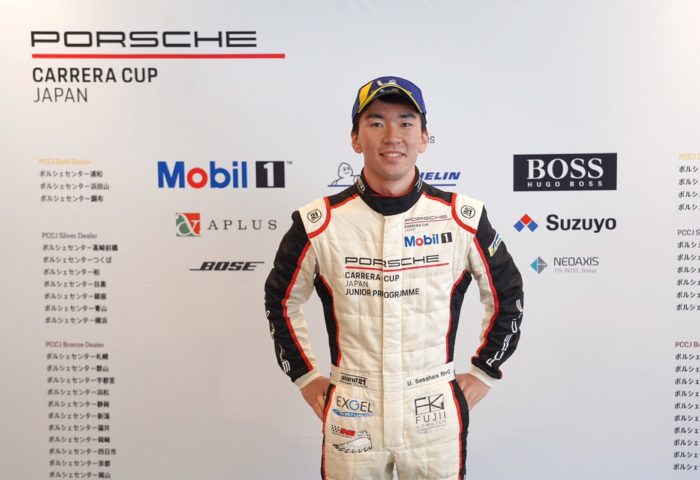
Porsche Japan Driver Ukyo Sasahara
Recently, at the Porsche Sportscar Together Day 2019, I had the opportunity to interview Ukyo Sasahara, who is competing this season as a Porsche Japan Junior Driver in the PCCJ(Porsche Carrera Cup Japan).
Ukyo Sasahara, born in 1996 and from Gunma Prefecture, is 23 years old. He made his racing debut in karting in 2003 and has won championships in various domestic and international series. Since 2013, he has competed in Formula Renault, finishing 3rd in the Formula Renault 2.0 NEC standings in 2015. In 2016, he earned a scholarship at SRS-Formula(Suzuka Circuit Racing School Formula), and in 2017, he finished 2nd in the FIA-F4 Japanese Championship. In 2018, he placed 3rd in the All Japan F3 Championship, marking him as a talented young driver.
*Source: Ukyo Sasahara Official Website
This interview was not conducted by a motor journalist but by me, an amateur, so I decided to ask some straightforward questions that you don’t usually hear in typical motor magazine interviews.
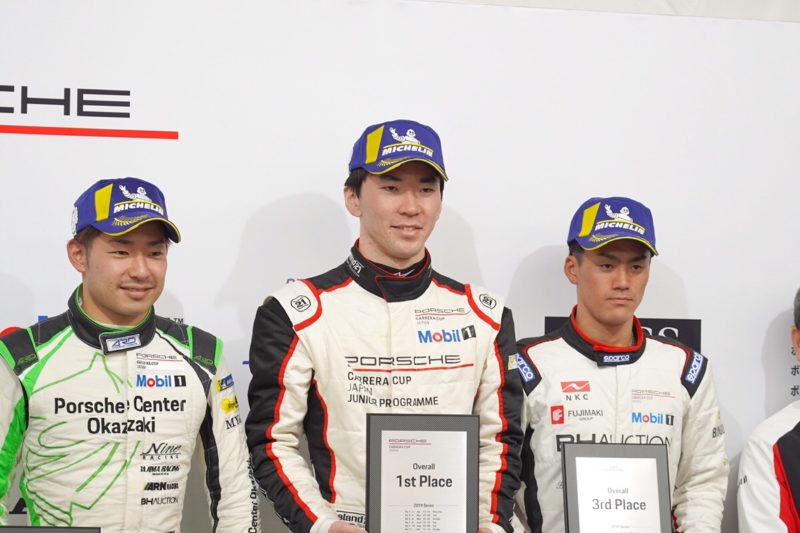
Interview with Ukyo Sasahara
Q1. About Training
What kind of training do you usually do?
I do general training, but as a racing driver, I especially focus on training my neck. During races, especially in corners, the neck experiences a lot of G-forces.
For example, in F3, the cars don’t have power steering(a mechanism that assists the driver’s steering), so the steering wheel is very heavy. The faster you go, the more downforce is generated, which makes the steering even heavier.
Also, when cornering in F3, about 4G(four times body weight) is exerted, so if you don’t strengthen your neck muscles, your body can’t withstand the forces during cornering.
Besides the neck, you use your shoulders, back, and arms fully when cornering, so building upper body strength is very important. Additionally, modern cars have ABS, so strong braking force is also necessary. Ultimately, you need to train your whole body, including your lower body, in a balanced way.
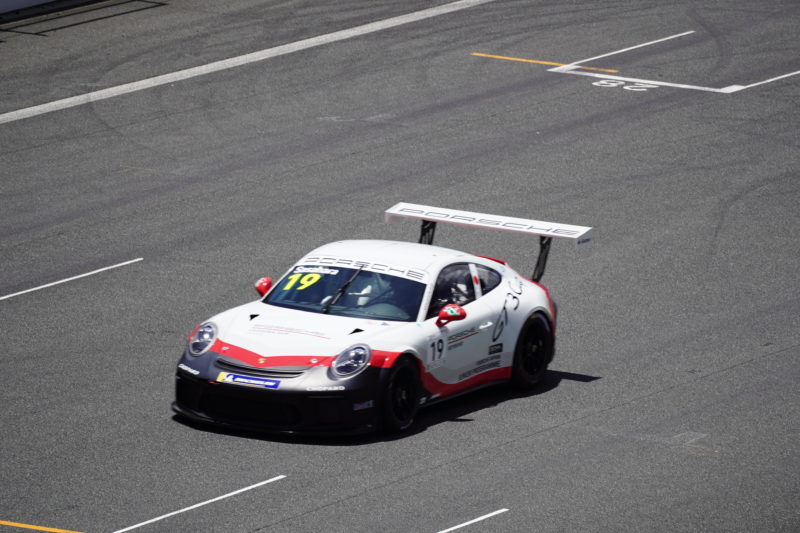
What kind of neck training do you do?
Since many important nerves run through the neck, if you apply too much load or train incorrectly, you risk serious injury. To avoid that, I do exercises like attaching a rubber rope to a wall, looping it around my neck, and pulling it while moving my head forward, backward, and side to side a certain number of times. I also lie on my side with a 5kg weight on my neck and move it up and down to strengthen it.
There’s no “correct” way, so every driver experiments and develops their own unique training style.
Also, when we say “build muscle,” bulky, bodybuilder-style muscles aren’t helpful for racing. What racing drivers need are muscles that may not look big but have strong core stability and flexibility.
Fortunately, I used to swim, so training in water naturally applied resistance to my body, which helped me build overall strength. I think that was very beneficial.
Q2. Favorite Circuit
As someone who has raced worldwide, which circuit do you like the most?
Hmm… my favorite is the Circuit de Spa-Francorchamps in Belgium. It’s a famous circuit, so many people have probably heard of it.
Spa-Francorchamps is where I won my first Formula Renault race, so it holds a special place in my heart. Plus, it’s just really fun to drive.
It’s challenging but exciting, and the more laps you do, the more you want to keep going—“I want to drive more, I want to drive more.” I don’t think there’s any other track like that.
What makes Spa-Francorchamps so fun?
There’s a famous corner called Eau Rouge with a big elevation change, and when you enter it, it feels like you’re crashing into a wall or flying into the sky. You can barely see the ground.
After that, there’s a section with a huge elevation difference(equivalent to an 18-story building) where you race downhill. It’s a spot that tests a driver’s courage and skill, but it’s also crucial for assessing the car’s balance.
When I won my first Formula Renault race there, both my aggressive driving and the car setup clicked perfectly, and it felt amazing.
As a result, my qualifying lap was almost a course record, earning me pole position. At that moment, I was in the zone—having so much fun and adrenaline pumping.
I don’t think there’s any other circuit where you can experience that kind of extraordinary feeling. That’s part of the thrill of racing.
Q3. Future Goals
What are your goals moving forward?
This season, I’m competing as a Porsche Japan Junior Driver, and at the end of the year, I will challenge the junior driver selection in Germany to become a Porsche works driver. My first goal is to win that championship.
It’s a tough gate to pass, but I want to clear it and become a works driver for Porsche in Germany. That’s my biggest goal right now. In fact, no Asian has ever been selected as a Porsche works driver before.
I’m sure all the drivers and PCCJ team members feel very frustrated and eager about that.
That’s why I want to pave the way to becoming a works driver as a Japanese driver.
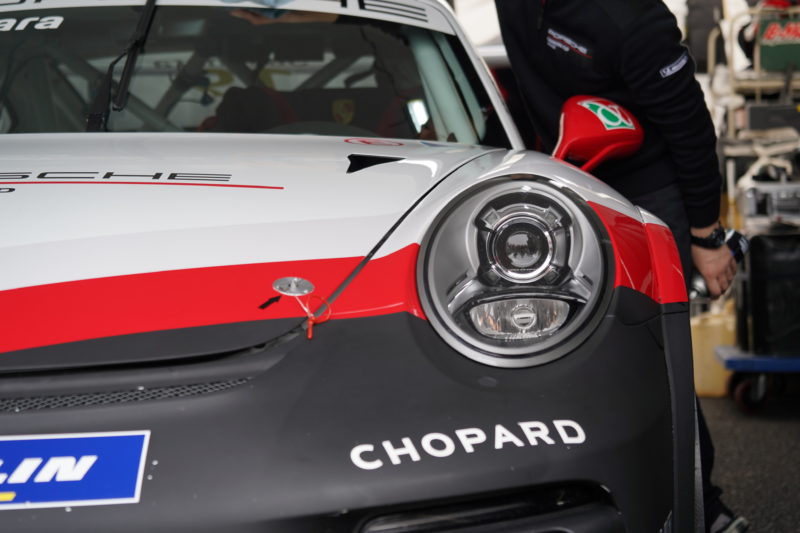
Have you always had the goal of becoming the first Asian works driver and competing globally?
Yes. I think many young people who start racing dream of becoming an F1 driver someday. But unfortunately, many can’t pursue that dream due to financial or environmental reasons.
A few years ago, I was racing in Europe but had to return to Japan due to various circumstances. I’m not saying this to brag, but I wasn’t losing to Europeans and believed I was the most competitive Japanese driver.
So honestly, I was frustrated back then.
Nowadays, younger drivers are making waves in F1, so at my age, aiming for F1 is honestly difficult. When I thought, “What now?” I felt a strong desire to try again and compete in Europe!
At that time, I got the chance to challenge PCCJ, and here I am now.
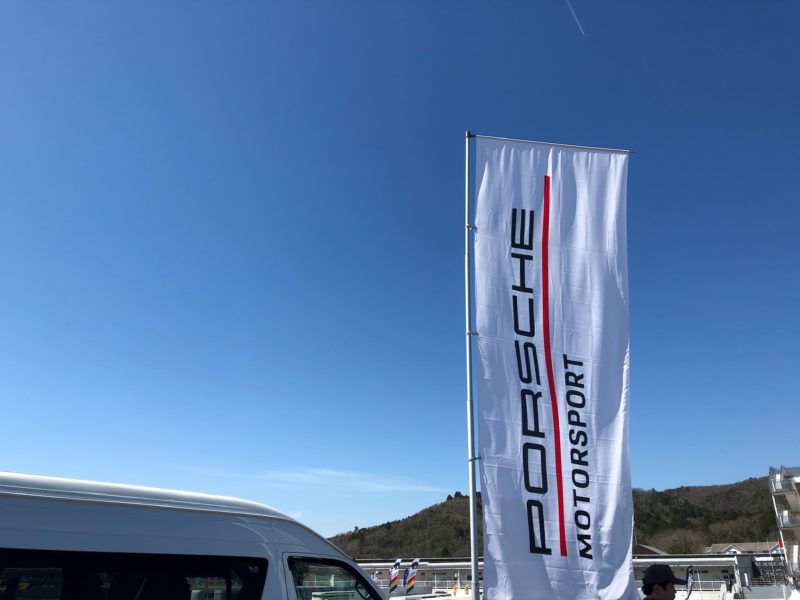
Q4. Turning Pressure into Opportunity
You started today’s race from 5th and finished 2nd. What was your mindset during the race?
In PCCJ, the starting grid for the final race is decided by qualifying times, and qualifying is everything. The qualifying position greatly affects the final race. If you don’t qualify well, it’s extremely difficult to recover and win in the final.
In the qualifying the day before this race, heavy rain caused a red flag and the race was canceled. I secured pole position for the first day’s final based on my best qualifying time, but my second-best time was not good, so I started 5th in the second day’s final race.
Usually, starting 5th makes it hard to overtake the cars ahead even with a good start, but this time, I seized every moment of opportunity and moved from 5th to 2nd. So this 2nd place finish was very meaningful to me, both in terms of points and personally.
You never know where opportunities will appear during a race. So you always need to be ready to grab them, but sometimes what you think is an opportunity turns out to be something else entirely. That’s the challenge and the fun of racing.
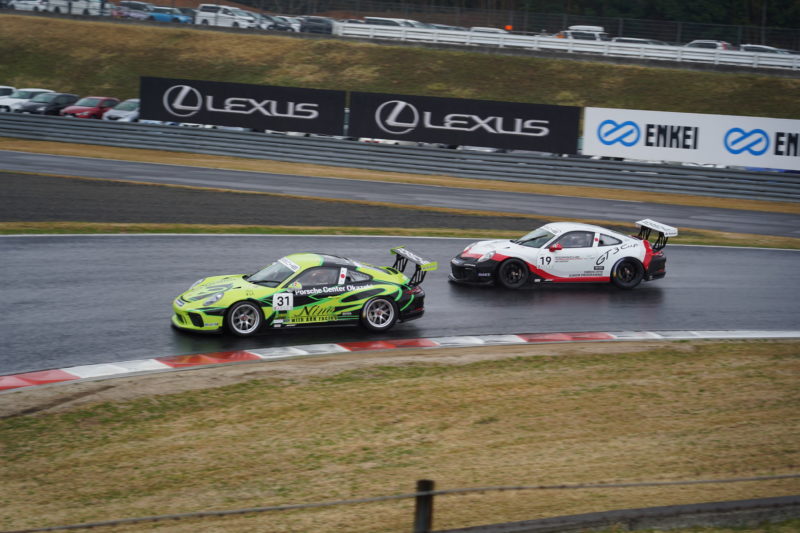
Do you ever feel overwhelmed by the pressure of people’s expectations?
I’m used to pressure (laughs), so I don’t get crushed by it. My family wasn’t super wealthy, so I’ve been able to continue racing thanks to the support and encouragement of many people.
From a young age, I was in an environment where if I didn’t produce results, I couldn’t continue racing. At first, that was stressful, but gradually I came to think:
“There’s no point worrying about that. I’ll focus on giving my all in every race right in front of me. If I do that, things will naturally work out.”
So now, being able to race is more about gratitude than pressure.
That said, honestly, I still wish I could have continued racing in Europe.
In that sense, PCCJ offers a chance to race in Europe again, so I want to grab this opportunity no matter what.
For myself, for the young drivers who will join Porsche Japan’s scholarship program in the future, and for the PCCJ team members, I want to firmly open the path as the first Japanese Porsche works driver.
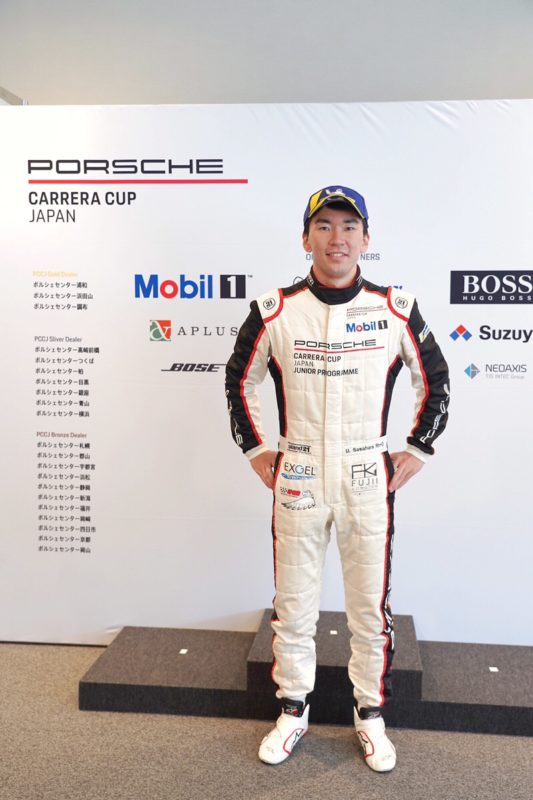
Post-Interview Notes on Ukyo Sasahara
After the PCCJ final race, despite being tired, Ukyo Sasahara kindly and sincerely answered my questions. Not only is he a skilled driver, but his character is wonderful, and his dignity and integrity shine through. I feel even more motivated to support him from now on! Thank you very much, Ukyo Sasahara!
このブログが気に入ったらフォローしてね!


Comment ( 0 )
Trackbacks are closed.
No comments yet.